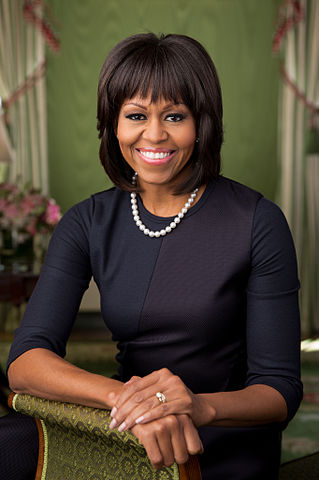 Last night I was a guest speaker for ABWA. My presentation was Speak Powerfully Sell More: Speak Your Way to More Business.
One woman in the audience asked a question about how to handle a celebrity who is hired to speak and doesn't deliver. This woman went on a rant about how many of these celebrities are not good speakers and yet meeting planners continue to hire them. I explained that the reason for that was event planners want to sell tickets. An event will sell out when the keynote speaker is a celebrity.
Last night I was a guest speaker for ABWA. My presentation was Speak Powerfully Sell More: Speak Your Way to More Business.
One woman in the audience asked a question about how to handle a celebrity who is hired to speak and doesn't deliver. This woman went on a rant about how many of these celebrities are not good speakers and yet meeting planners continue to hire them. I explained that the reason for that was event planners want to sell tickets. An event will sell out when the keynote speaker is a celebrity.
This made me reflect on my own experience at conferences and I had to agree. I recall one convention where I signed up for the lunch event for an additional charge. The guest speaker was a well known television personality. And he was late! We had already been served the main course before he cavalierly sauntered on stage in his jeans and pec-enhanced tee shirt. I enjoyed his stories but I couldn't get past his lateness. He never made mention of it. The woman sitting next to me had booked celebrity speakers in a past job and told me that they don't care if they're late. They expect everybody to wait for them.
It seems that some celebrities don't prepare or don't know the audience. One woman media personality gave a presentation about herself and her career path. Who cares? Can you spell BORING? Some celebrity speakers trade on their name and expect to be paid just for showing up.
A number of years ago, I was hired by the National Basketball Association when they launched the NBDL (minor league team). My job was to media train the team presidents and media relations people of these newly formed teams. The media training was well-received. One woman thanked me and said that she had recently been part of the Olympic committee. The committee brought in the "big gun" media trainers who were television anchors. She confided to me that these anchors "Just showed us videos and told us stories. But you showed us how to do it."
Once again, it's all about perceived value. I'm sure I made a fraction of what they paid these anchors. But because of their celebrity status, they were considered excellent media trainers.
So what is the solution? How can meeting planners and speakers bureaus ensure that the celebrity speakers can deliver? They can't. Some guest speakers have a good reputation for consistently delivering a great keynote speech. Hire them. But let's say you want a particular celebrity for your meeting because you'll sell out your event, but you know the speaker doesn't have very good platform skills?
Don't give the celebrity the keynote speech. Instead, feature them as the main event for an interview on stage. Conduct the interview "Charlie Rose" style. Then hire a professional speaker who can wow the crowd or has strong content. The audience will get exposure to the celebrity or guest, the celebrity's ego will be intact as the main act, and you won't lose your reputation as an event planner.
When it comes to meetings and events, public speaking skills matter. The event is only as good as the speakers. The audience will pay to hear a celebrity, but if he doesn't deliver, they may not come back the next time.
If you book celebrity speakers, I'd love to hear how you ensure that they will deliver on the platform. And what do you do when they disappoint the audience? Would you hire a celebrity speaker the next time? Or would you try a less known presenter or entertainer?

 Today marks the eleven year anniversary of 911. I remember it like yesterday. It was the nicest day of the year. There was a noticeable stillness in the air. I headed off to
Today marks the eleven year anniversary of 911. I remember it like yesterday. It was the nicest day of the year. There was a noticeable stillness in the air. I headed off to  Bill Clinton is a rock star on the speaking platform and the ultimate spin meister. I tell my audiences that gifted speakers are born. Most public speakers will never reach the level of a Martin Luther King. Not even most professional speakers achieve that height. Some speakers have a special gift-an ability to move the masses, entertain the crowd, speak off the cuff, and sway an audience.
And last night at the Democratic Convention, Clinton demonstrated all of it and then some. As I anticipated his speech, I wondered how he was going to excite the crowds when the facts pointed to high unemployment, lower wages, and a general discontent with the economy. Well, it didn't take him long to put a position spin on the situation. How did he do it?
Bill Clinton is a rock star on the speaking platform and the ultimate spin meister. I tell my audiences that gifted speakers are born. Most public speakers will never reach the level of a Martin Luther King. Not even most professional speakers achieve that height. Some speakers have a special gift-an ability to move the masses, entertain the crowd, speak off the cuff, and sway an audience.
And last night at the Democratic Convention, Clinton demonstrated all of it and then some. As I anticipated his speech, I wondered how he was going to excite the crowds when the facts pointed to high unemployment, lower wages, and a general discontent with the economy. Well, it didn't take him long to put a position spin on the situation. How did he do it?
 Today is Take a Second Look Day. That means it's a day to repurpose, reuse, or redistribute your content. It can apply to anything in your life. Since many public speakers freeze when they have to prepare a speech or presentation, I thought it would be valuable to apply this "Take a Second Look" concept to preparing a presentation.
Panel Presentations
Let's say you're asked to speak on a panel or to give a stand-up presentation on your topic of expertise. You're staring at a blank piece of paper and wondering how to begin. Who says you have to start from scratch? Use what you already have done. Take a look at past presentations, documents, proposals, blogs, and articles you're written. What is the main topic or theme? How can you repackage it?
Today is Take a Second Look Day. That means it's a day to repurpose, reuse, or redistribute your content. It can apply to anything in your life. Since many public speakers freeze when they have to prepare a speech or presentation, I thought it would be valuable to apply this "Take a Second Look" concept to preparing a presentation.
Panel Presentations
Let's say you're asked to speak on a panel or to give a stand-up presentation on your topic of expertise. You're staring at a blank piece of paper and wondering how to begin. Who says you have to start from scratch? Use what you already have done. Take a look at past presentations, documents, proposals, blogs, and articles you're written. What is the main topic or theme? How can you repackage it? Last night at the Republican convention, we witnessed public speakers who nailed their presentations. What do Paul Ryan, Condolezza Rice, and Susana Martinez have in common as public speakers? Each and everyone of them shared a personal story.
Susana began by telling the story of her immigrant parents.
Last night at the Republican convention, we witnessed public speakers who nailed their presentations. What do Paul Ryan, Condolezza Rice, and Susana Martinez have in common as public speakers? Each and everyone of them shared a personal story.
Susana began by telling the story of her immigrant parents. A couple of years ago I spoke to an organization of business owners. Their policy was that you had to give two free three hour presentations before you could have the honor of being paid to speak. It didn't matter if you had 20 years experience,
A couple of years ago I spoke to an organization of business owners. Their policy was that you had to give two free three hour presentations before you could have the honor of being paid to speak. It didn't matter if you had 20 years experience,  It was Day One of my presentation skills seminar. I asked the participants to talk about their passion. The presenters spoke about a vacation, a hobby, a sport, an event. It was evident that their presentations improved when they spoke with passion.
Next up was Elliot. I asked, "What's your topic?" He replied, "Inventory control." A bit confused, I said, "No, Elliot, It should be something you feel passionate about. What excites you?" "Inventory control," he countered. I could tell that this was going to be a LONG day. Subscribing to the philosophy, if you can't beat 'em, join 'em, I acquiesced. After all, some people just have to learn the hard way. I hit the record button on the video camera, as I anticipated his painfully boring presentation.
It was Day One of my presentation skills seminar. I asked the participants to talk about their passion. The presenters spoke about a vacation, a hobby, a sport, an event. It was evident that their presentations improved when they spoke with passion.
Next up was Elliot. I asked, "What's your topic?" He replied, "Inventory control." A bit confused, I said, "No, Elliot, It should be something you feel passionate about. What excites you?" "Inventory control," he countered. I could tell that this was going to be a LONG day. Subscribing to the philosophy, if you can't beat 'em, join 'em, I acquiesced. After all, some people just have to learn the hard way. I hit the record button on the video camera, as I anticipated his painfully boring presentation. Mitt Romney was invited to speak to the NAACP knowing that it's members are overwhelmingly Democratic. He acknowledged and thanked his hosts and expressed his honor at being invited.
He made an attempt at humor by saying “I hope the Obama campaign doesn’t think you’re playing favorites.“ There was a mild tittering from the crowd.
Mitt Romney was invited to speak to the NAACP knowing that it's members are overwhelmingly Democratic. He acknowledged and thanked his hosts and expressed his honor at being invited.
He made an attempt at humor by saying “I hope the Obama campaign doesn’t think you’re playing favorites.“ There was a mild tittering from the crowd.


